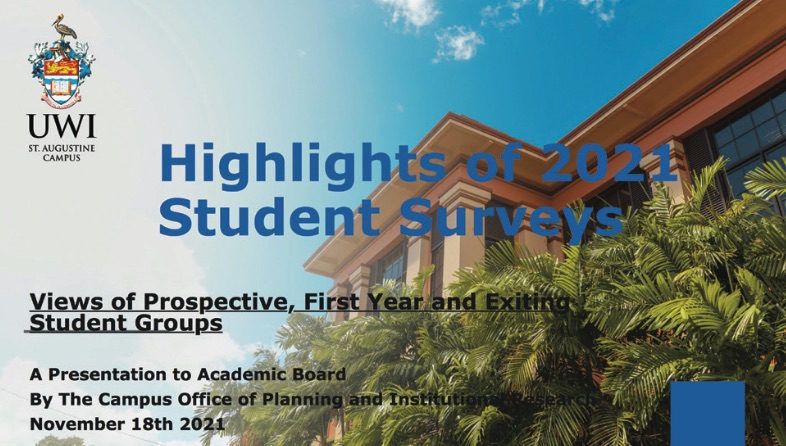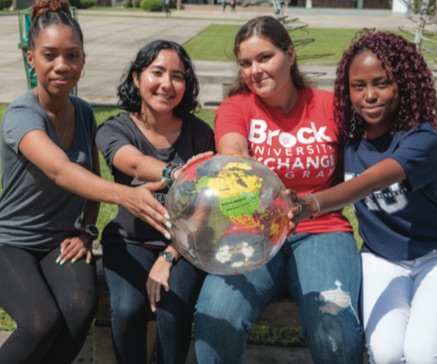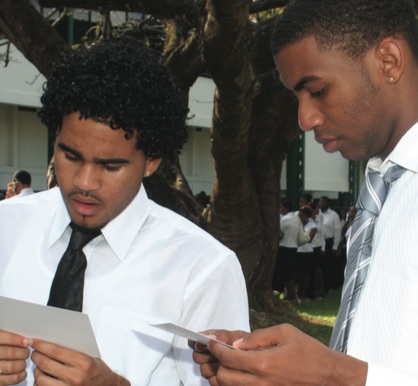Better communication. This was one of the major issues for prospective, first-year and exiting students of The UWI St Augustine in 2021. The data was revealed in a document that shared highlights of student surveys conducted in 2021. It was produced by the Campus Office of Planning and Institutional Research (COPIR).

The document showed that even though students were moderately satisfied with their academic experience, there were areas in need of improvement in the non-academic experience. The results of the survey will assist the campus in improving service delivery to the campus community.
COPIR, according to an official statement, "collects, analyses and reports on data that supports the planning function, as well as policymaking and decision-making. It also provides information and analytical support in helping the institution to fulfil its overall mission".
This is crucial for UWI St Augustine as the campus adapts to challenges such as decreased financial support from Caribbean host governments, greater competition from other higher education institutions, and an uncertain economic climate in the region and wider world. To improve, any institution needs accurate feedback from its customers. UWI's customers are its students.
“The goal for us is to improve the experience and the relevance, and to create a competent human resource pool towards national development,” Mrs Reanti Singh, Head of COPIR.
The collected highlights document combines three surveys, the Prospective Student Survey, the First-Year Student Experience Survey, and the Student Exit Survey. Conducted in 2021, some of the results showed the impact of COVID-19. Most students cited the pandemic as a threat to their ability to study effectively, and wanted more support and understanding from lecturers when it came to remote education challenges, such as internet connectivity problems, and family and work commitments. Overall, students were satisfied with UWI St Augustine's response.

Regarding prospective students, their decision to pursue higher education or their first-choice programme at The UWI did not waver much despite the difficulties brought on by the pandemic. The campus also recorded a vaccine uptake of 77 percent of prospective students and 67 percent of first-year students.
At its core, COPIR is a problem-solving engine – the on-campus cerebral cortex of the higher education system. Year-round, it is the business of a small team of people to write and conduct student and staff surveys, collect and collate the data, and analyse it to make recommendations. The survey highlights are then presented to campus management, who in turn use the recommendations in alignment with their strategic plan.
In general, UWI's strategic areas of focus are widening access to quality tertiary education; greater alignment of the university with academia, industry and international partnerships relevant to the region’s needs; and responding effectively to the needs of its students and staff. COPIR uses a Balanced Scorecard model to measure and improve efficiencies in learning and growth, university administration and system processes, its key stakeholders, and finances. The information it collects also helps shape policy in response to the trends that occur.
Among COPIR’s survey objectives were to learn more about student demographics and factors impacting student decisions; to learn the parameters of the student experience and what contributes to their satisfaction levels; to understand better how to attract prospective students; to learn how to improve the delivery of teaching and student support services; and to understand student concerns and communicate them for active response and decision-making.

The profile of the prospective student respondents who were surveyed in 2021 and who were accepted to an undergraduate programme at the campus stands at 25.3 percent male and 72.5 percent female. This statistic supports the continuing trend that girls outperform boys in educational achievement globally. Ninety-one per cent of this group’s respondents were Trinidad and Tobago nationals.
Of the first-year students who participated in the survey, 25.2 percent were male and 73.1 percent female. Fifty-eight percent of them ranged from ages 20 to 24, and 81 percent were locals. Among the exiting students, 27 percent were male and 71.4 percent were female, with the majority of them, 88 percent, being from Trinidad and Tobago, and 12 percent being foreign students.
In the student preferences category, surprisingly, of the prospective group, 66 percent was likely to seek employment instead of pursuing further education, but The UWI was the first choice for 83 percent of all respondents who did consider starting a degree. Forty-seven percent of students from the exiting group were actively employed either on or off campus. Ninety-one percent of exiting students expressed interest in pursuing post-graduate studies. Finally, the majority of students supported blended learning, a point that has been observed at the secondary level, too.

The majority of prospective students expressed that The UWI website and faculty booklets were helpful and informative. First-year and exiting students were moderately satisfied with the academic experience, but, as mentioned, there was somewhat less-than-average satisfaction concerning non-academic experience.
Some recommendations regarding easing financial hardship were made, namely, increased visibility of and communication about the availability of funding. Students also wanted access to a flexible tuition payment plan.
Expectedly, the pandemic created a radical shift in the learning experience and students articulated that the scheduling and delivery of the online curriculum was not conducive to the new learning environment. Included in this feedback, students expressed the desire for more frequent communication from lecturers, and from administration regarding feedback and queries related to funding and applications. To this end, students felt that a virtual student helpline, improved social media communication, and virtual office hours for lecturers would improve their overall student experience significantly.
To learn more current UWI facts and statistics, visit https://sta.uwi.edu/copir/